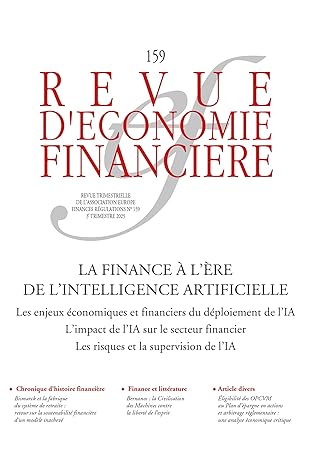Artificial intelligence has become a cross-cutting technology that concerns all economic sectors and has applications in all use cases as soon as there is a layer of analysis. AI has the potential for systemic transformation by simultaneously changing the way the entire economy produces, organizes and innovates.
The financial sector is, of course, not exempt from these changes. Computers in the 1970s enabled the emergence of quantitative finance and the development of sophisticated mathematical models to assess risk and optimize portfolios. But AI is specific by its autonomy, its ability to interact in natural language, to adapt its decisions through learning, to process and analyze huge volumes of data in real time, and to convert textual information into investment strategies. These few examples, already adopted in daily operations, suggest disruptive upheavals in the sector.
This issue of the “Revue financière d’économie,” edited by Marie Brière, explores the issues as well as the economic, financial and ethical challenges, and the impacts and risks associated with the increasing integration of AI in the financial sector. Thirteen leading contributors, such as Cédric Villani, Philippe Aghion, Agnès Bénassy-Quéré, to name but a few, provide a valuable synthesis around three main themes.
The first is devoted to the economic and financial challenges of deploying AI. It addresses the strategic needs in terms of funding and research related to AI, ethical issues, recalling that humanity invests ten times more in AI and digital technology than in the ecological transition, the impacts on the dissemination of innovation and productivity and finally digital currencies and the role of fintechs as well as central banks.
The second part addresses some use cases of AI and generative AI in finance. The various contributors revisit integration strategies in scoring, payment default, loan applications, insurance claims management, and cyber risk prevention, but show that these productivity gains can be offset by new, less visible risks.
In the last part of this issue, the experts focus on the risks and the different regulatory approaches, and in particular on the ability of regulatory authorities to use AI to assist them in their control mission.
This issue of the “Revue d’économie financière” offers us a rather comprehensive approach to the current debates on the complex issues of the use of AI in the financial sector.
Marie Brière, is Head of Investor Research at Amundi Investment Institute, Associate Researcher at Dauphine and ULB and President of Inquire Europe.
Ph Alezard


